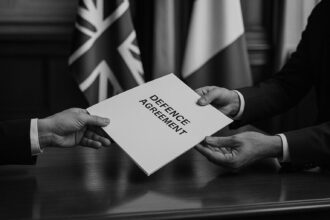Former UK Prime Minister Boris Johnson was unable to vote in a recent election due to not having the required photo ID, an irony given the rule was introduced during his tenure.
Boris Johnson, the former UK Prime Minister, faced a personal setback relating to the voter ID laws initiated during his administration, when he was denied the ability to vote for lack of proper identification. The incident occurred during the recent election in South Oxfordshire, where locals were voting for a police and crime commissioner. Initially, Johnson attempted to use a copy of Prospect magazine as proof of identification, but was turned away. He later returned with his driving licence and was able to vote.
This incident highlights the implementation of the Elections Act 2022, introduced during Johnson’s tenure, which mandates that voters present photo ID at polling stations. This law, which was enforced for the first time in last year’s local elections, aims to prevent voter fraud.
The range of acceptable forms of ID comprises passports, driving licences, and several other approved items, with at least 22 different forms being recognised. The enforcement of this policy has provoked discussions about its necessity and the hurdles it may create for voters. For instance, Adam Diver, an army veteran, reported issues with his veteran ID card not being recognised, though governmental adjustments are considered to approve these cards in future elections.
Despite the challenges encountered by some voters, Transport Secretary Mark Harper noted that most found the process straightforward, and the majority managed to vote successfully. The changes continue to be reviewed for improved implementation in future elections.
The event has drawn attention not only through news but also through satire, with cartoonist Martin Rowson depicting the incident in The Guardian, encouraging reflection on the importance of adherence to the electoral rules even by those who established them. This blend of factual reporting and cultural commentary contributes to ongoing conversations about the impact and efficacy of voter ID laws in the UK.













